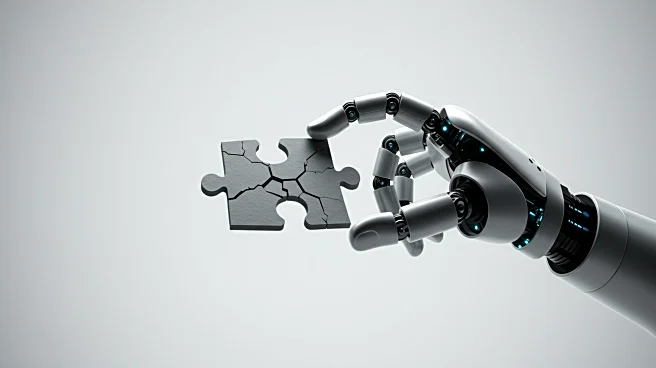What is the story about?
What's Happening?
The tech industry is currently grappling with a new workplace trend known as 'quiet cracking,' which describes employees feeling trapped in their jobs due to burnout and stagnation. This phenomenon is distinct from 'quiet quitting,' where employees disengage from their roles. 'Quiet cracking' involves employees who continue to work despite feeling unappreciated and lacking career advancement opportunities. According to TalentLMS, 20% of employees frequently experience this, while 34% do so occasionally. Concurrently, there is growing anxiety over the impact of artificial intelligence (AI) on jobs, with predictions of significant unemployment in the tech sector. This anxiety is compounded by warnings from figures like Robert Kiyosaki, who foresee AI leading to massive job losses, particularly among educated workers.
Why It's Important?
The emergence of 'quiet cracking' and AI anxiety highlights significant challenges within the tech industry, affecting employee morale and job security. As AI continues to evolve, there is a real concern about its potential to displace jobs, particularly in white-collar sectors. This situation could lead to increased unemployment and economic instability, affecting both individuals and the broader economy. For tech companies, addressing these issues is crucial to maintaining a motivated workforce and ensuring sustainable growth. The public sector may benefit from this trend by attracting skilled workers seeking stability, but it also underscores the need for policies that support workforce adaptation to technological changes.
What's Next?
As the tech industry navigates these challenges, companies may need to implement strategies to improve employee engagement and career development opportunities. This could involve offering training programs to help workers adapt to new technologies and roles. Additionally, there may be increased pressure on policymakers to create frameworks that support workers displaced by AI advancements. The industry will likely see a push towards balancing technological innovation with workforce sustainability, ensuring that employees are equipped to thrive in an evolving job market.
Beyond the Headlines
The rise of 'quiet cracking' and AI anxiety also raises ethical considerations about the responsibility of employers to provide supportive work environments. Companies may need to reassess their management practices and prioritize employee well-being to prevent burnout and disengagement. Furthermore, the potential for AI to disrupt job markets calls for a broader societal discussion on the future of work and the role of technology in shaping economic landscapes.














